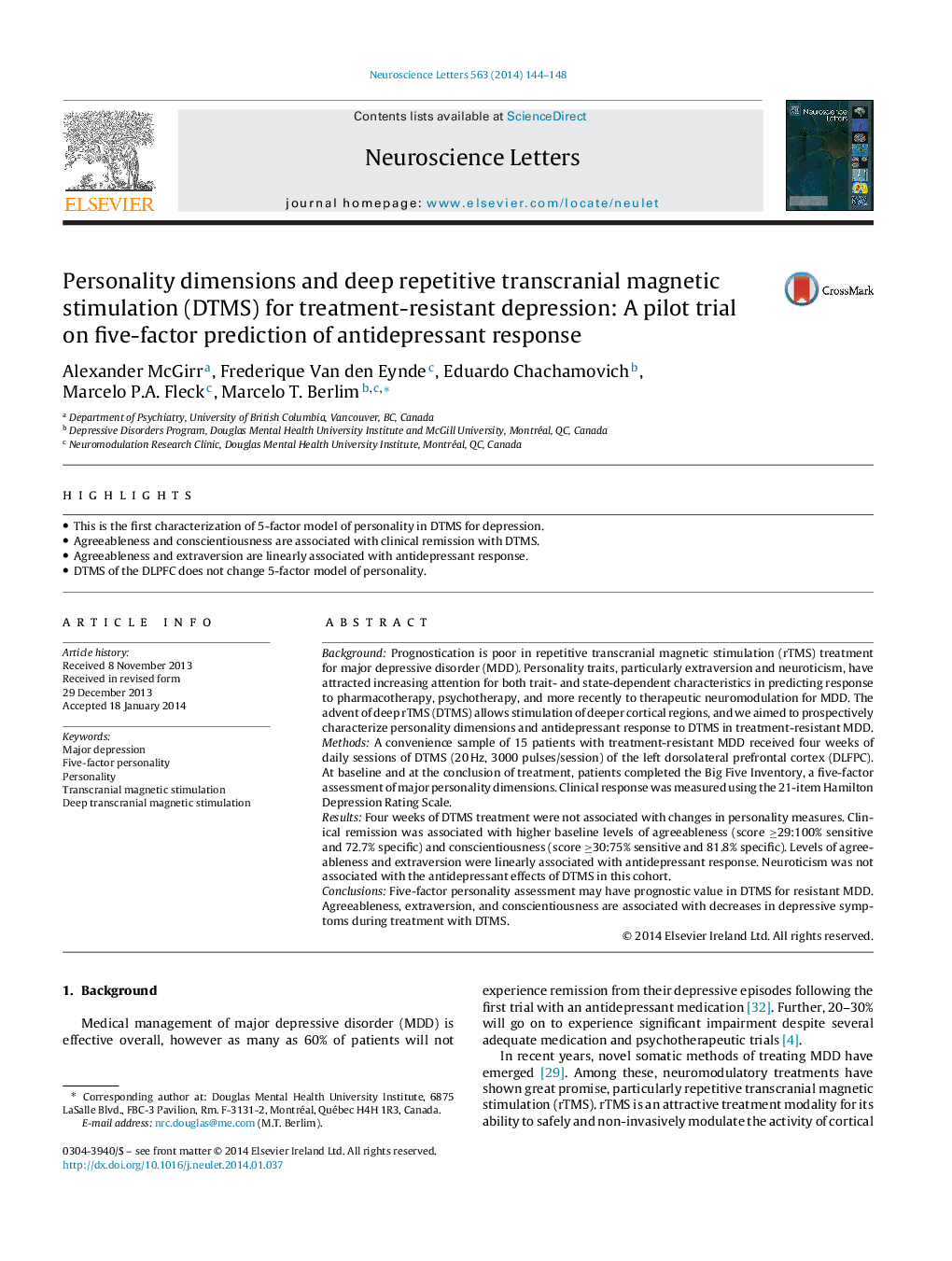| کد مقاله | کد نشریه | سال انتشار | مقاله انگلیسی | نسخه تمام متن |
|---|---|---|---|---|
| 4343802 | 1615136 | 2014 | 5 صفحه PDF | دانلود رایگان |

• This is the first characterization of 5-factor model of personality in DTMS for depression.
• Agreeableness and conscientiousness are associated with clinical remission with DTMS.
• Agreeableness and extraversion are linearly associated with antidepressant response.
• DTMS of the DLPFC does not change 5-factor model of personality.
BackgroundPrognostication is poor in repetitive transcranial magnetic stimulation (rTMS) treatment for major depressive disorder (MDD). Personality traits, particularly extraversion and neuroticism, have attracted increasing attention for both trait- and state-dependent characteristics in predicting response to pharmacotherapy, psychotherapy, and more recently to therapeutic neuromodulation for MDD. The advent of deep rTMS (DTMS) allows stimulation of deeper cortical regions, and we aimed to prospectively characterize personality dimensions and antidepressant response to DTMS in treatment-resistant MDD.MethodsA convenience sample of 15 patients with treatment-resistant MDD received four weeks of daily sessions of DTMS (20 Hz, 3000 pulses/session) of the left dorsolateral prefrontal cortex (DLFPC). At baseline and at the conclusion of treatment, patients completed the Big Five Inventory, a five-factor assessment of major personality dimensions. Clinical response was measured using the 21-item Hamilton Depression Rating Scale.ResultsFour weeks of DTMS treatment were not associated with changes in personality measures. Clinical remission was associated with higher baseline levels of agreeableness (score ≥29:100% sensitive and 72.7% specific) and conscientiousness (score ≥30:75% sensitive and 81.8% specific). Levels of agreeableness and extraversion were linearly associated with antidepressant response. Neuroticism was not associated with the antidepressant effects of DTMS in this cohort.ConclusionsFive-factor personality assessment may have prognostic value in DTMS for resistant MDD. Agreeableness, extraversion, and conscientiousness are associated with decreases in depressive symptoms during treatment with DTMS.
Journal: Neuroscience Letters - Volume 563, 20 March 2014, Pages 144–148